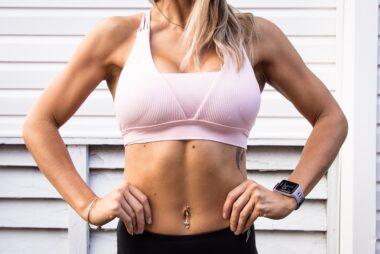Pre-Workout Nutrition: What Women Should Eat for Peak Performance
Pre-workout nutrition is vital for women looking to maximize their fitness sessions. Consuming the correct foods before exercise provides energy and enhances performance. The primary objective is to fuel the body with a balance of macronutrients—carbohydrates, proteins, and fats—to sustain energy levels throughout the workout. Carbohydrates should be the cornerstone of pre-workout meals, as they are a primary energy source. Complex carbohydrates, such as whole grain bread or oats, are ideal for sustained energy release. Protein is also crucial and helps minimize muscle damage during exercise. Foods like Greek yogurt or low-fat cottage cheese can be excellent options. Healthy fats from sources like nuts or avocados are beneficial but should be consumed in moderation to avoid a heavy feeling during workouts. Timing can influence the effectiveness of pre-workout nutrition; ideally, meals should be consumed one to three hours before exercising to optimize absorption. Hydration is equally important, as even slight dehydration can lead to decreased performance. Therefore, incorporating fluids throughout the day ensures you are adequately hydrated for your training sessions.
Women athletes often need specific nutritional strategies tailored to their unique physiological needs. A well-structured pre-workout snack can make all the difference in energy levels and overall performance. Options like a banana with almond butter or a smoothie packed with spinach, protein powder, and berries provide an excellent mix of nutrients. Attending to recovery alongside pre-workout nutrition is crucial, as it ensures that your body can repair itself after intense exercise. Post-workout, replenishing glycogen stores with carbohydrates and protein sources will help muscle recovery. Nutrition should also adapt based on the intensity of your workout; higher intensity workouts may require a larger carbohydrate intake to support energy needs. Women should consider adjusting their meals during different phases of their menstrual cycle, particularly around menstruation when energy levels can fluctuate. Meal prepping can alleviate stress on busy days, ensuring that nutritious options are readily available. In addition to whole foods, supplements could be incorporated if you’re struggling to meet nutritional goals. Always consult a healthcare provider before starting any new supplements to ensure they fit your body’s needs.
Essential Nutrients for Peak Performance
The key nutrients for energy during workouts include carbohydrates, proteins, and vitamins. Carbohydrates are the body’s primary fuel source, providing immediate energy. Fruits, like bananas, and whole grains are excellent options before exercising. Women should aim to consume 30 to 60 grams of carbohydrates about 30 minutes to an hour before physical activity. Proteins help repair and build muscle tissues, making them an essential part of any pre-workout nutrition plan. Foods such as chicken, tofu, or legumes can provide a necessary protein boost. It’s also important to consider vitamins, particularly B-vitamins, which greatly influence energy production within the body. Including foods with antioxidants, like berries, may aid in reducing inflammation, supporting recovery post-exercise. Another vital aspect of pre-workout nutrition is developing an individual plan based on personal preferences, as well as potential food intolerances. Listening to the body will provide insight into what works best nutritionally. Logging meals and exercise can aid in understanding different reactions. With adjustments based on feedback, optimal nutrition can be achieved for enhanced performance.
Maintaining hydration before a workout is critical. Dehydration can have adverse effects, diminishing your athletic performance. Aim to drink water consistently throughout the day, and consider drinking a glass approximately 30 minutes before you begin your workout. Sports drinks may be beneficial for longer or more intense workouts but should be selected wisely, opting for options low in sugar. Electrolytes, crucial for hydration, can also include Na, K, and Ca. Consuming foods with natural electrolytes, like bananas or yogurt, can provide an additional layer to hydration needs. Assessing your body’s need for hydration should be an ongoing process. If you’re exercising in hot conditions or sweating heavily, increase fluid intake pre-workout to stay ahead of any potential dehydration. The concept of ‘thirst’ is an unreliable indicator for many women. Implementing a focus on regular drinking versus only when thirsty can improve performance and endurance. Keep a designated water bottle or hydration tracker handy. In structured training plans, build in regular percentages of hydration at specific intervals to ensure you’re properly fluid-balanced before your workout sessions.
Pre-Workout Foods to Incorporate
Several food options stand out as particularly effective for fueling workouts. For complex carbohydrates, consider foods like quinoa, brown rice, or sweet potatoes, which offer sustained energy. Simple carbohydrates, such as fruit, can also be beneficial if consumed shortly before exercise. Smoothies are an efficient choice as they allow customization, enabling the addition of proteins, greens, and even healthy fats. A nutrient-packed smoothie can quickly become a go-to pre-workout option. Similarly, energy bars can be very convenient, provided they are made with wholesome ingredients. When selecting bars, look for those high in fiber and low in added sugars. Salads can also be suitable if they incorporate protein sources like chickpeas or nuts. A pre-workout salad with an olive oil vinaigrette can enhance overall energy levels. Remember to avoid foods that are spicy or too high in fat, as they might cause gastrointestinal discomfort during physical activity. Each person’s digestive system responds differently, so keeping track of how different foods influence your workout can provide valuable insights for tailoring your nutrition strategy.
Women in strength training might find that high-protein snacks, such as cottage cheese, can positively impact their energy and performance. Combining carbohydrates with protein within pre-workout meals assists in enhancing endurance and muscle preservation. Greek yogurt topped with berries provides both macronutrients along with vitamins and antioxidants—a perfect synergy for strength sessions. Additionally, focusing on portion sizes can help optimize energy without causing discomfort. Finding the correct balance between quantity and quality will be essential for your unique requirements. Throughout the preparation phase, including both wholesome food options and nutrient-dense smoothies can set the stage for successful workouts. Utilizing frozen fruits and greens can save time while ensuring great flavor and texture. Each workout intensity may require slight adjustments to your eating plan to ensure optimal performance. Consequently, consistency will also play a role; sticking to familiar meals can help your body adapt progressively to given pre-exercise fuel. By experimenting with diverse food combinations during various sessions, tailored approaches can develop to enhance overall performance effectively in your training regimen.
Final Thoughts on Pre-Workout Nutrition
Embarking on a journey toward optimal pre-workout nutrition requires thoughtful planning and personalization. Paying attention to how foods impact your performance and energy levels will help you develop a strategy. The goal should be to establish a routine that aligns with personal preferences and fitness goals. Prioritize nutrient-dense foods and steering clear off processed options that do not contribute to energy levels. Remember that nutrition is just one aspect; maintaining mental toughness and a positive mindset will complement your physical training. Consulting with a sports nutritionist can provide added knowledge tailored to individual needs and goals. They can help create a detailed meal plan centered around pre-workout nutrition, ensuring you receive the maximum benefits. Seeking knowledge about nutritional science can further enhance your understanding of how food affects energy and performance. Keep refining your nutrition as you evolve in your fitness journey, adjusting as necessary to discover what works best for you. Lastly, enjoy the process and celebrate your fitness victories, regardless of size, as every step contributes to greater well-being and strength.
Fueling your body properly before a workout is essential for women aiming for peak performance. A well-balanced pre-workout meal plays a significant role in enhancing energy levels and maximizing workouts. Aim for a combination of carbohydrates, proteins, and healthy fats that will sustain energy throughout your exercise session. Complex carbohydrates, such as oats and fruits, are excellent choices, while sources of protein like yogurt or lean meat are important for muscle retention. Healthy fats from nuts or avocados can be beneficial but should be consumed in moderation. The timing of your pre-workout meal can vary; generally, eating 30 minutes to two hours before exercise allows for optimal energy levels. It’s crucial to adapt your nutrition according to the intensity of the workout as well. For vigorous sessions, a higher carbohydrate intake may be necessary. Pre-workout nutrition is not merely about what you consume but also about hydration; drinking water or electrolyte drinks is essential. Creating a sustainable nutrition plan tailored to your preferences, goals, and workout routine can help ensure you stay energized and motivated on your fitness journey.





